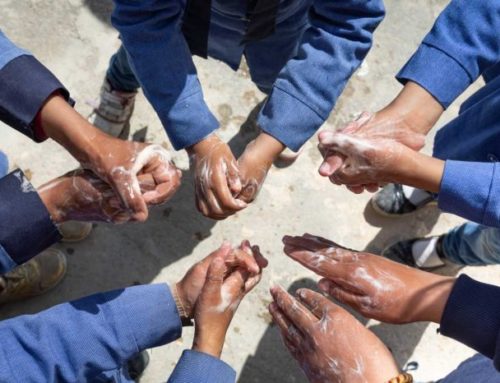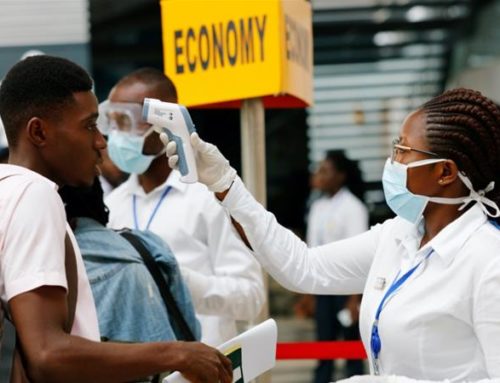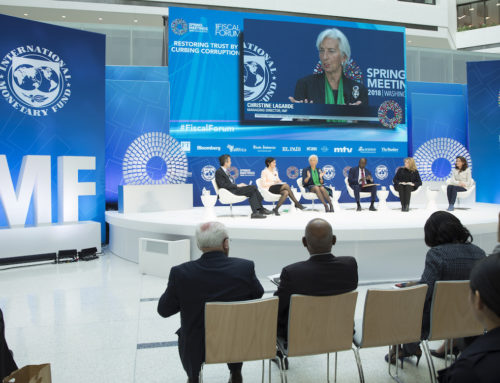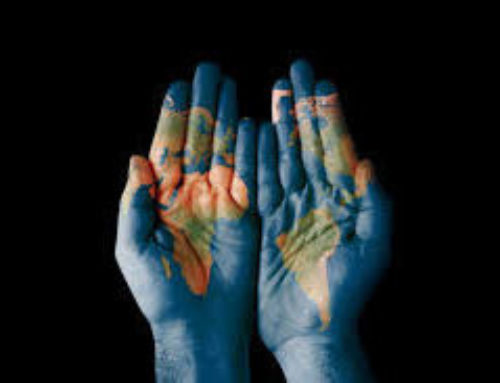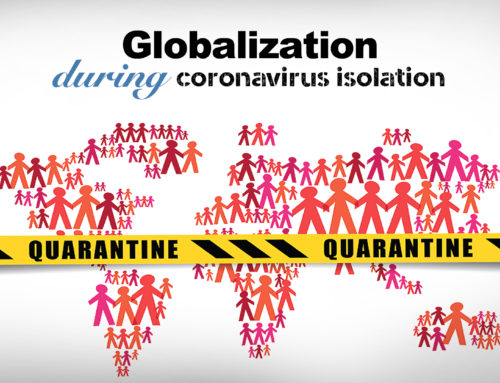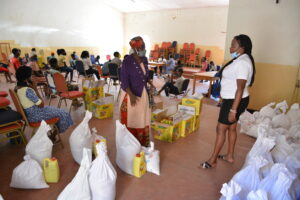
Emergency Food Distribution by Jesuit Urumuri Centre for vulnerable families most affected by the COVID-19 Pandemic
March 2020 is the time most of East African countries registered first cases of COVID-19 on their home soils. In Rwanda, the notice was followed by the declaration of total lock-down in the night of Saturday, 21st March 2020. If the lock-down has come and gone, its stains in people’s lives and their world’s perceptions will however remain with us for some more time.
My five takeaways are as follows:
1. When Science Cannot be Trusted, Conspiracy Theories Ran Havoc: COVID-19 was first announced in Wuhan, China towards the end of 2019. Despite its deadly aggression and uncontrollable spreading nature, scientists, especially in the World Health Organization took long to recognize the virus as an epidemic which needed global attention and caution. Such initial minimalistic assessment was also seconded by fluctuating information as regards the description and knowledge about the nature of the virus. This could only fuel contempt and feed development of conspiracy theories around the killer disease. The subsequent lock-downs measures were nothing short of gracious moments for the world to absorb such conspiracies and shed doubts around the real existence of the virus.
2. Underpaying Employment Is as Precarious as Joblessness at its Worst: One of the painful consequences of the lock-down measures to contain the spread of COVID-19 has also been the hunger crisis suffered by majority of middle class citizens in many of our neighborhoods. For so long, people had contented themselves with their monthly earnings which allowed them to have a relatively stable life. However, that apparent satisfaction had masked the fragility of an economic system in which majority of employees can hardly save anything from their earnings. COVID-19 has badly exposed the poverty of a great many in the private sector and the low income earners. Hopefully the future of the world without COVID-19 will consider deciding on a minimum wage in every nation to preempt the perpetuation of unjust wages that can beget such economic collapse among the working class!
3. Symbolism is Underrated, Its Absence Signals Societal Peril: The proverbial pronouncements like “a picture is worth 1000 words” or “out of sight [is] out of mind” have today proven their prophetic resonance more than ever before. The experience of lockdowns has translated into the shutdown of many social activities including schooling and religious celebrations. The conventional school has moved from actual classroom setting to virtual learning. Despite the ingenuity behind this swift shift, virtual learning has proven too alien to a number of pupils for some of whom only empirical demonstrations and practical breakdown of theories could mean real transmission of knowledge. Learning requires engagement of senses and where necessary symbols serve as linkages between one’s senses and abstract realities. In virtual learning and virtual celebration of mystical realities, society has suffered the most of the dictates of COVID-19 lockdowns.
4. Death is a Tragedy at its Worst when Mourners Cannot Mourn their Loved Ones: COVID-19 may have taken lives of many of our fellow brothers and sisters, but it is also crucial to remember that its lockdowns have aggravated the pain through the smothering of all possibilities to honor our dead and offer them a befitting burial. As many of us are today negotiating the COVID-19 recovery strategies, it is fundamentally important to also devise ways through which communities collectively and families individually can pay last homage to their loved ones who have departed during the period of the COVID-19 outbreak. It is an exercise that will liberate the spirits and heal some others as it will also help reconcile the world of the living and that the dead in a fashion that no any other way can do.
5. Relegating Religious Activities to Non-essential Services Was as Scandalous as Tragic: Despite the rise of secularism in many parts of the world especially among the decision-making circles or people at the helm of political leadership positions, majority of ordinary citizens affirm to affiliate to particular religious denominations. Individual life is intrinsically connected with the supernatural reality, and trying times such as COVID-19 crises are only well mastered when the individuals in trials are able to draw strength from the Absolute reality. It has been a tragic experience to live through moments of losses of loved ones and those of nursing one’s own illness without the opportunity to have spiritual accompaniment and sacraments. If the hurt of this disconnection remains unquantifiable at the moment, it is nonetheless one of the deep wounds which Pastors should learn to curb as part of the post-COVID recovery journey.
COVID-19 has primarily been understood as an epidemiological problem that needed a medical attention. However, the above takeaways help us understand that the COVID-19 crisis has left a deeper hole in the social fabric of our lives and the recovery process from this crisis will need collective efforts from people of all walks of life. It should even be boldly noted that the post COVID-19 recovery journey should necessarily lead us to a new normal and not just to the normal life we used to have. The five talking-points, I have singled out, can insinuate the areas in which our new normal needs to pay attention to among many other considerations that need to change from now on if we all aspire for a better post-COVID world.
Fr. Patrice Ndayisenga, SJ
Director, Jesuit Urumuri Centre






